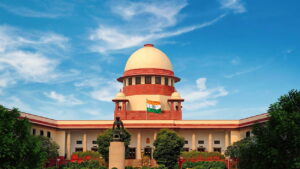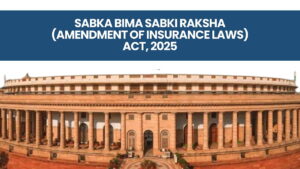Medical records management is an activity where hospitals collect and retain extensive medical data, such as clinical notes, diagnostic reports, discharge summaries, prescriptions, test results, billing information, and more. Effective and legally compliant management of those records is vital, not only for patient care continuity but also for legal protection, regulatory compliance, and trust. In India, there are specific legal requirements governing how records must be created, stored, accessed, and disclosed, and hospitals face serious risks when they fail to adhere to them. This blog explores the legal framework, recent cases, and practical risks in managing medical records.
Legal & Regulatory Requirements for Medical Records
Statutes, Guidelines, and Ethical Codes
- Clinical Establishments (Registration and Regulation) Act, 2010 (CEA)
Under Section 14 of this Act, hospitals and clinical establishments must maintain accurate and up-to-date medical records for all patients. These records must be confidential, secure, and protected from unauthorized access. - National Medical Commission / Medical Council Regulations
The NMC (formerly Medical Council of India) guidelines require that physicians and hospitals keep medical records (especially in-patient records) for a certain period (commonly three years) from the date of last treatment. Also, when a patient or legal representative requests their medical records, hospitals are bound to provide them, and must do so within a reasonable timeframe (often interpreted as 72 hours) under certain rules. - Consumer Protection Act, 2019
Medical treatment is “service” under this Act. Patients who believe their rights have been breached—including denial of access to medical records—can approach consumer forums for redressal. The forums often see access to records as integral to showing deficiency of service. - Right to Information Act, 2005 & Judicial Interpretations
Though RTI primarily applies to public authorities, courts have held that government hospitals cannot withhold medical records from patients / their attendants, especially if requested under legal or constitutional grounds. For example, in Jothi v. The State (Madras High Court, 2023), withholding medical records was held to be professional misconduct and tortious liability. The court reiterated that medical records must be furnished within 72 hours of request. - Constitutional Rights
Courts have regularly linked access to medical information with constitutional guarantees—particularly the right to life and personal autonomy. Denial of records has been seen as infringing on Article 21 and right to information under Article 19(1)(a).
Real-Life Cases Illustrating Failures and Enforcement
1. Madras High Court – Jothi v. The State and Others (2023)
In this case, a mother requested medical records from a government hospital after a newborn baby died, alleging negligence. The hospital claimed the records were missing. The Madras HC held that withholding medical information is professional misconduct. It also held that government hospitals must maintain records and provide them to patients or attendants within 72 hours of request. Failure to do so amounts to tortious liability. A compensation of ₹75,000 was awarded.
2. Ernakulam Consumer Forum – Lourdes Hospital Case (2025)
In Kerala, the Ernakulam District Consumer Disputes Redressal Forum emphasized prompt access to medical records. A plaintiff complained that Lourdes Hospital did not provide records adequately. The court made observations about using digital means (secure portals, encryption) to deliver records, stressed that hospitals should inform patients of their rights to access records at the time of admission, and admonished lack of clarity in prescriptions. Although the case was dismissed for lack of service deficiency, the forum’s direction is significant.
3. Cyberattack on Delhi Hospitals (Sant Parmanand & NKS Super Speciality, June 2025)
Two hospitals in north Delhi had their servers hacked, compromising patient records and financial data. This incident underscores risk of data breach affecting medical records. Not only does it impact patient trust and continuity of care, it raises legal exposure—privacy law, IT Act, potential liability.
At-a-glance comparison (2019–2024)
| State / Region | Notable incidents or cases (2019–2024) | Legal / regulatory response | Infrastructure & reporting (indicator) | Qualitative risk level |
|---|---|---|---|---|
| Tamil Nadu | Madras HC (Jothi v. State, 2023) — held withholding medical records by government hospitals amounts to professional misconduct; hospitals must furnish records within 72 hours. | Strong judicial intervention — High court direction, orders to treat withholding as misconduct; channels for enforcement via state medical council and consumer forums. | Relatively high legal activism and precedent-setting judgments improve transparency pressure; mixed across public vs private institutions. | Moderate → Improving — strong case law, but compliance gaps in places. |
| Kerala | Consumer forum / state forums have emphasised prompt access and recommended secure digital delivery of records (e.g., Ernakulam directions). Courts actively issue guidance on documentation and access. | Active consumer commissions; judicial guidance urging digital portals, encryption and informing patients at admission. | Higher level of consumer forum activity and constructive directives; some hospitals already adopting portals. | Moderate — proactive consumer/legal oversight; practical implementation uneven. |
| Jharkhand | Large government AYUSH portal breach (Sept 2023) — ~320,000+ patient records exposed on hacking forums. | Breach prompted security alerts and media attention; cybersecurity/IT responses by authorities; limited published follow-through on systemic reforms. | Public sector portal vulnerabilities exposed; low maturity in secure deployment and monitoring. | High — evidenced by large public-sector data exposure. |
| Uttar Pradesh / Noida (NCR) | Major diagnostic provider (Redcliffe Labs) left an unsecured database exposing ~12 million patient records (Oct 2023). | Incident drew media and security-researcher scrutiny; patching followed; limited public regulatory sanctioning disclosed. | Indicative of poor cloud/configuration hygiene among some private diagnostic vendors; large data volumes at risk. | High — large volume exposure, private sector configuration gaps. |
| Delhi / NCR (Healthcare IT vendors) | HealthGenie (Delhi-based) left S3 bucket open exposing ~450,000 files containing clinical and PII (Apr 2024). | Media / researcher disclosures led to vendor remediation; again, limited evidence of systemic regulatory penalties. | Shows third-party vendors / integrators are weak points even when hospitals claim better security. | High (for vendor-integrated hospitals) — vendor risk is significant. |
| Nationwide / Insurer (Tamil Nadu HQ) | Star Health data (2024) — leaked via Telegram chatbots; millions of policyholders’ medical data surfaced; litigation followed. | Litigation vs platforms/hackers and court injunctions; media and regulator attention; demonstrates insurer-scale exposures. | National insurers and intermediaries introduce systemic exposure; cross-jurisdictional issues complicate legal response. | Very High (systemic) — scale of insurer data and distribution channels raises national risk. |
Key Risks for Hospitals in Medical Records Management
- Legal Liability & Deficiency of Service
Failure to maintain accurate records—or refusing to provide records in timely manner—can be grounds for consumer complaints, professional misconduct, tortious liability, and compensation orders. Cases like Jothi demonstrate that withholding records is no longer defensible in public hospitals. - Breach of Patient Rights & Loss of Trust
Patients expect confidentiality, access, and transparency. If records are missing, manipulated, or refused, it undermines trust and can affect patient care outcomes. - Data Breaches & Cybersecurity Risks
Digital medical records are vulnerable to cyberattacks if proper security is not in place. As seen in the Delhi hospital hack, once records are breached, hospitals may face legal sanctions under the IT Act, regulatory penalties, loss of reputation. - Regulatory Non-Compliance
Clinical establishments law, NMC guidelines, etc., mandate certain practices—including digitisation, retention periods, and legibility. Ignoring these may expose hospitals to regulatory action from state health authorities or medical councils. - Litigation Risks & Evidence Issues
In medical negligence or medico-legal cases, courts rely heavily on medical records. Poorly maintained, illegible, unsigned records, or delayed or denied copies can weaken a hospital’s defense. Litigation costs, delayed justice, and possible high compensation are risks. - Operational & Ethical Risks
In practice, inefficiencies like missing files, illegible notes, or loss of records can cause misdiagnosis, delayed treatment, or duplication of tests, adding to patient harm and increasing cost.
Best Practices for Hospitals to Mitigate Legal Risks
- Establish a Medical Records Department
A dedicated cell or department that maintains, archives, and supervises all records (paper and/or digital), ensures quality in documentation, timeliness, proper storage and safe destruction where permitted. - Digitization & Secure Access
Move towards electronic medical records (EMRs), patient portals, secure authentication, encryption, audit trails to track access and changes. Ensure data backup and disaster recovery plans. - Clear Policies on Access & Disclosure
Hospitals should have well-written policies that define how and when records are shared with patients or legal representatives, cost for copies, timelines (e.g., 72 hours), the permissible scope. - Retention Schedules & Legal Timelines
Maintain records as per statutory or regulatory requirements—commonly 3 years for in-patient/surgical records, possibly longer for medico-legal or clinical trial data. Retain records until litigation is over if a case is pending. - Training & Auditing
Train medical, administrative staff on documentation standards: legibility, correctness, dates, signatures. Regular audits of record-keeping practices. - Data Security & Privacy Compliance
Apply privacy and data protection principles (consent, access control, breach notification). Ensure compliance with any relevant data protection law (e.g., the Digital Personal Data Protection Act, 2023) when applicable. - Redressal Mechanisms
Be prepared to respond to requests efficiently, provide records within the stipulated time, clarify patient rights. Transparent communication helps defuse potential disputes.
Legal Gaps and Emerging Issues
- There is no fully sector-specific law in India (as of mid-2025) that mandates all security, breach notification, and detailed privacy standards specifically for healthcare data; EMR standards still have ambiguous coverage.
- Ownership of medical records is sometimes contested: while hospitals generally “own” the physical or EMR files, patients have rights to access copies. Misunderstandings on this front often lead to disputes.
- Digital infrastructure is uneven: many hospitals still maintain paper-based records, which are vulnerable to damage, loss, and delays. Transition to digital systems is costly and requires technical expertise.
- As hospitals try to digitize, threats of hacking, loss of data, or misuse (commercialization) of records emerge, especially in absence of uniform laws on breach notification and data privacy standards.
Conclusion
Medical records are the backbone of quality healthcare delivery, and rightly so also a cornerstone in legal accountability, patient rights, and institutional trust. Indian law mandates that hospitals maintain accurate, accessible, and secure medical records; give patients access upon request; store records for defined periods; and ensure ethical handling and disclosure. Real-life cases from Madras High Court’s Jothi judgement to consumer forum rulings in Kerala and cyberattacks on Delhi hospitals, highlight the serious risks that accrue when hospitals fail in this duty. Hospitals that proactively adopt best practices, digitization, secure record systems, clearly defined access policies, regular audits, staff training and robust data security—stand better protected legally, ethically, and reputationally. As healthcare becomes ever more data-driven, solid medical records management is not just an administrative task—it is a legal imperative.






